With this blog, I try to make habit of only posting about newer and/or obscure music. But as any self-professed music addict can relate to, I also spend a lot of time getting into the classics that may have inspired some of my favorite artists. This year has been an especially fruitful one, with tons of highly acclaimed albums blowing my mind the same way they've been blowing millions of other minds for decades now, making me wonder how I've managed to survive for so long without them. Though enough has been said about these albums in the past, I still feel the need to give these albums their, as Q-Tip would say, 'spect.
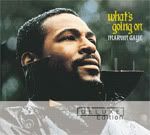 Marvin Gaye - What's Going On (1971)
Marvin Gaye - What's Going On (1971)
I was going to say this album was like butter (if nothing else, it would keep the Q-Tip references going), but the more I think about it, it's smoother than butter. Gaye's voice is passionate; urgent. The arrangements, though repetitive at some parts, are well done, almost demanding to be heard from beginning to end every single time the album comes out of my speakers. Though, of course, it helps that it's bookended by two of best soul tracks ever recorded, in the title track and "Inner City Blues". I can't help but listen to this and feel a sense of disappointment over the lack of good protest albums as of late (though Nas provided the closest exception).
Score: 9.5/10
"Flying High (In The Friendly Sky)"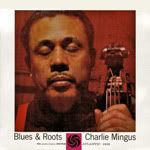 Charles Mingus - Blues & Roots (1960)
Charles Mingus - Blues & Roots (1960)
I got really into Mingus last year when I discovered the classic that is The Black Saint & The Sinner Lady. But as Blues & Roots proved (as well as Mingus Ah Um, Tijuana Moods and probably more that I've yet to hear), this guy had tons of good music in him. "Moanin'" should easily be considered one of the best jazz songs ever recorded, if it already isn't.
Score: 9/10
"Moanin'"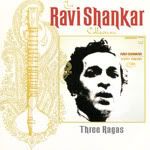 Ravi Shankar - Three Ragas (1956)
Ravi Shankar - Three Ragas (1956)
In the booklet to this albums digitally remastered CD release, it goes into detail on the intricacies of a raga as well as the new styles that Ravi Shankar introduced. It explains different parts in detail and what characterizes them. I'd be lying if I said I understood any of it. But even considering my total ignorance, I know that what I'm hearing on these tracks is most certainly amazing. And perhaps one day I'll be able to explain exactly why.
Score: 9/10
"Raga Jog" (excerpt)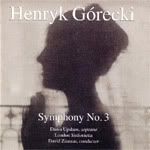 Henryk Mikołaj Górecki - Symphony No 3 "Symphony of Sorrowful Songs" op. 36 [Dawn Upshaw (soprano); London Sinfonietta/David Zinman] (1992)
Henryk Mikołaj Górecki - Symphony No 3 "Symphony of Sorrowful Songs" op. 36 [Dawn Upshaw (soprano); London Sinfonietta/David Zinman] (1992)
Yeah, so this is pretty much the Kind Of Blue of modern classical (translation: loved by newbies; somewhat respected by enthusiasts who realize that there's much better to be heard in the genre). Whatever. I don't really listen to enough classical to be a snob about it just yet, so to me this was nothing short of breathtaking. Since Godspeed You! Black Emperor are on "indefinite hiatus" and Sigur Rós cheered up, Sorrowful Songs fills the void in my life for monumentally epic sad music. It really is quite beautiful. Almost overwhelmingly so.
Score: 9/10
"Lento E Largo - Tranquillissimo"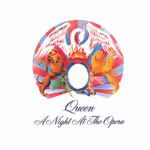 Queen - A Night At The Opera (1974)
Queen - A Night At The Opera (1974)
As cool as it would make me look to do so, I can't hate this. I just can't. It's too (and I rarely use this word to describe an album in a non-patronizing way) fun. Some elitists cite this album as the beginning of the end of rock and roll, but I can't think of many better albums they could listen to to subvert that pessimistic mood. The song arrangements are all over the place, ever-changing and creative. Say what you will about the more well-known singles, but dissing "The Prophet's Song" is liken to admitting you torture kittens for fun.
Score: 8.5/10
"The Prophet's Song"






No comments:
Post a Comment